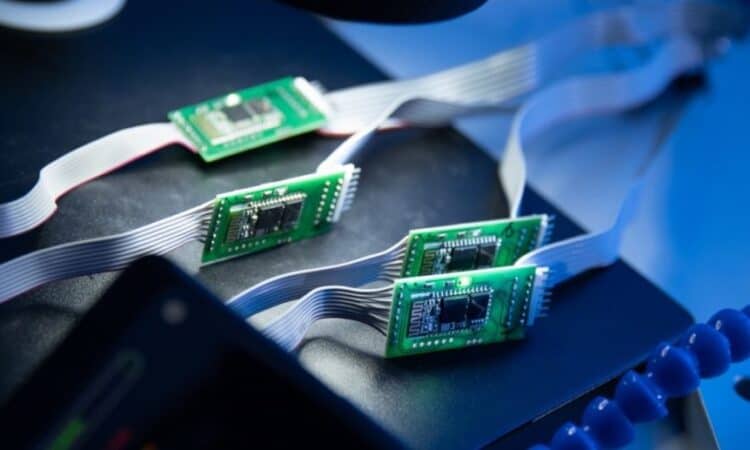Smart healthcare and wearable devices represent a transformative frontier in the healthcare industry. They leverage advanced technologies to monitor and manage patient health remotely and in real-time.
These wearable devices, equipped with sensors and connectivity capabilities, enable continuous tracking of vital signs, physical activity, and other health metrics. Data collected from these devices can be seamlessly integrated into healthcare systems, providing healthcare professionals with timely insights for personalized patient care and early intervention.
Moreover, smart healthcare solutions facilitate remote patient monitoring, enhancing accessibility to healthcare services and improving patient outcomes, particularly for chronic disease management. As the capabilities of artificial intelligence and data analytics continue to evolve, smart healthcare and wearable devices are poised to revolutionize healthcare delivery by empowering individuals to take proactive control of their health and well-being.
Research in healthcare informatics encompasses the application of information technology and data science to improve healthcare delivery, patient outcomes, and population health management. It involves the integration and analysis of healthcare data from various sources, including electronic health records (EHRs), medical imaging, genomics, and wearable devices. Healthcare informatics research aims to develop advanced algorithms and computational models for clinical decision support, predictive analytics, and personalized medicine.
By leveraging artificial intelligence, machine learning, and big data analytics, researchers can uncover valuable insights from large datasets to enhance disease diagnosis, treatment effectiveness, and healthcare efficiency. Moreover, healthcare informatics plays a crucial role in addressing challenges such as interoperability, data security, and patient privacy within healthcare systems. As healthcare informatics continues to evolve, it promises to revolutionize healthcare delivery by fostering innovation, improving healthcare quality, and optimizing resource utilization across healthcare organizations.
Dr. Saima Zafar, Professor and Head of the Electrical Engineering department at the National University of Computer and Emerging Sciences (FAST NUCES) Lahore, is leading a research group focused on the design and development of smart healthcare systems. Her research in smart healthcare systems and wearable medical devices represents a pioneering effort to integrate cutting-edge technology into healthcare delivery.
Her work uses the Internet of Things (IoT), artificial intelligence (AI), and cloud computing to develop innovative solutions for remote patient monitoring and personalized healthcare. Dr. Zafar’s research includes the design of wearable devices embedded with sensors to continuously monitor vital signs and health parameters. These devices enable real-time data collection and analysis, facilitating early detection of health issues and timely intervention. Her contributions extend to designing smart healthcare systems that utilize AI algorithms for predictive analytics and decision support, enhancing healthcare efficiency and patient outcomes.
Dr. Zafar’s research underscores the transformative potential of technology in revolutionizing healthcare practices, ultimately improving quality of life and advancing the field of medical diagnostics and treatment. Dr. Saima Zafar’s recent project, published in the esteemed IEEE Embedded Systems Letters, is a significant achievement in the realm of hardware design for machine learning applications. Titled “SoC-based implementation of 1D Convolutional Neural Network for 3-Channel ECG arrhythmia classification via HLS4ML,” this pioneering work utilized HLS4ML, a Python package developed by CERN for machine learning inference in FPGAs.
This open-source platform has the potential to revolutionize the deployment of machine-learning models on specialized hardware. Dr. Zafar’s project focused on developing a System-on-a-Chip (SoC) architecture for efficient cardiac arrhythmia classification, demonstrating enhanced efficiency in area usage, power consumption, and resource utilization. Her research sets a precedent for future studies in smart wearable devices and healthcare technology. Dr. Zafar aims to expand this work to include 12-channel ECG for broader heart disease classification, further solidifying her contributions to the field and potentially impacting global healthcare.














